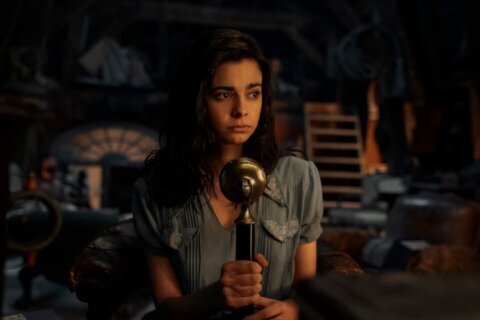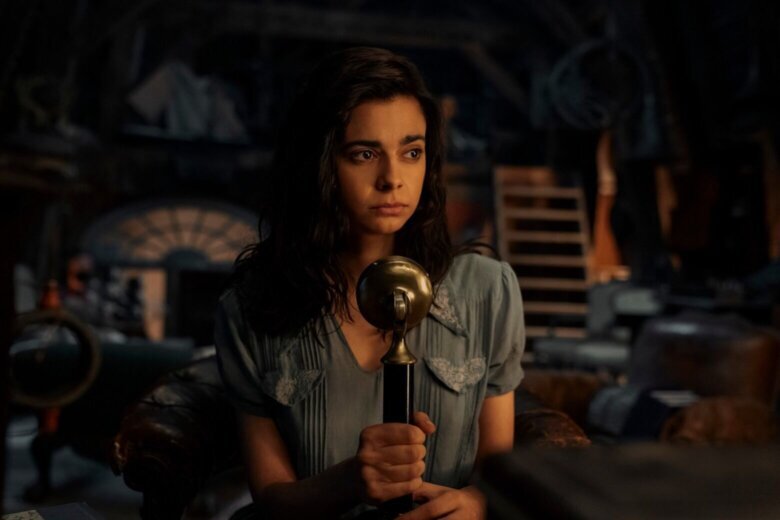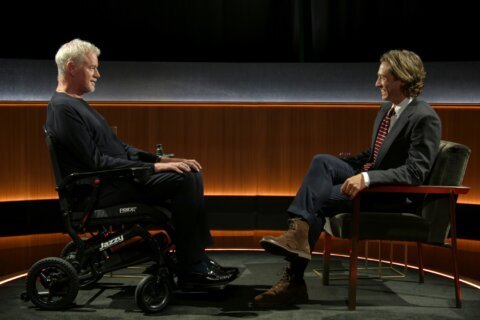
After we put away the scary movies for Halloween, November is a time for war films between Veterans Day and Thanksgiving.
Thus, the four-part miniseries “All the Light We Cannot See” premiered on Netflix this month, dividing critics, who seem to hate it, and audiences, who seem to think it’s a decent enough series — that is if you didn’t read the book.
Based on Anthony Doerr’s 2014 Pulitzer Prize-winning novel, the story is set during World War II where a blind French girl, Marie-Laure LeBlanc, hides in her uncle’s house in Saint-Malo when Paris is invaded by Nazi Germany. She performs nightly broadcasts reading literature over the airwaves, catching the attention of a German boy, Werner Pfennig, whose skills in repairing radio technology makes him a vital asset to the German military.
Marie is portrayed by Aria Mia Loberti, who was born with achromatopsia, a rare genetic eye condition that makes her legally blind with no vision in some environments. It’s a strong debut, hiding in an attic like George Stevens’ “The Diary of Anne Frank” (1959) but with a microphone like “The King’s Speech” (2010). Reading braille of Jules Verne, she’s able to reach other people with her words but unable to read the Allied leaflets dropped from the sky.
Werner is portrayed by German actor Louis Hofmann, who won acclaim as a P.O.W. in the Danish film “Land of Mine” (2015) before starring in the German Netflix Original series “Dark” (2017). He has the tricky task of making us root for him despite recruitment into Hitler Youth like “Jojo Rabbit” (2019). He’s “one of the good ones,” we’re supposed to believe, thanks to his shared childhood passion of listening to late-night broadcasts like Marie.
(If you like such romantic tales of wartime radio bonds, check out David Niven and Kim Hunter in Michael Powell and Emeric Pressburger’s early British Technicolor fantasy classic “A Matter of Life and Death” from 1946.)
The rest of the cast features familiar faces: Mark Ruffalo (“Spotlight”) as Marie’s father Daniel, a locksmith at the Paris Museum of Natural History; Hugh Laurie (“House”) as her great uncle Etienne, a reclusive World War I veteran suffering from PTSD; and Lars Eidinger (“White Noise”) as the evil Nazi SS officer Reinhold von Rumpel, who seeks the supernatural jewel the Sea of Flames, which prolongs your life but puts a curse on your family.
The supernatural element doesn’t tonally fit as well as Steven Spielberg’s “Raiders of the Lost Ark” (1981) or “The Last Crusade” (1989) as Indy raced against Nazis to find Biblical artifacts. Even if we overlook how Germans and French still speak in English for the audience’s benefit, the Nazi villain here is almost cartoonish in his dialogue. Yes, he’s the scum of the earth, but he lacks the sadistic nuance of Christoph Waltz in “Inglorious Basterds” (2009).
Developed by Steven Knight, who directed one of my favorite single-location films “Locke” (2013), the series jumps around in time a lot, so the parallel action becomes a bit confusing. I have not yet read the book, but many fans who read the book are griping online that the miniseries takes too many liberties and struggles to juggle timelines. For me, Marie’s encounters with the Nazi villain in the catacomb sewers feel particularly disjointed.
It’s all directed by Shawn Levy, who directed the “Night at the Museum” (2006-present) franchise before serving as the primary producer on “Stranger Things” (2016-present). The result feels like a Young Adult understanding of World War II more than it does a serious reflection like “Saving Private Ryan” (1998) or “Band of Brothers” (2001).
That’s totally fine — teen viewers need an entry point into history — but whenever such material arrives like “The Book Thief” (2013), there’s always a divide between critics, who despise sentimentality, and audiences, who actively crave it for comfort. For me, “All the Light We Cannot See” wasn’t nearly as bad as the ravenous reviews I read — in fact, the four episodes flew by with ease — but it’s also clearly a flawed work meant for younger eyes.
See it for yourself and let me know what you think.










